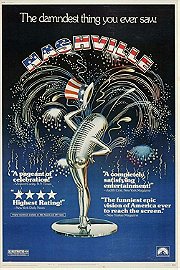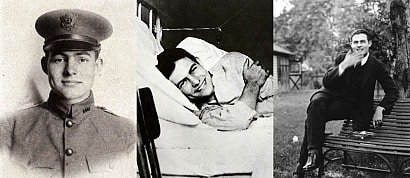Movies Influenced by Schopenhauer
Arthur Schopenhauer (German: [ˈaɐ̯tʊɐ̯ ˈʃoːpm̩ˌhaʊ̯ɐ]; 22 February 1788 – 21 September 1860) was a German philosopher. He is best known for his 1818 work The World as Will and Representation, in which he characterizes the phenomenal world as the product of a blind, insatiable, and malignant metaphysical will. Proceeding from the transcendental idealism of Immanuel Kant, Schopenhauer developed an atheistic metaphysical and ethical system that has been described as an exemplary manifestation of philosophical pessimism, rejecting the contemporaneous post-Kantian philosophies of German idealism.Schopenhauer was among the first thinkers in Western philosophy to share and affirm significant tenets of Eastern philosophy (e.g., asceticism, the world-as-appearance), having initially arrived at similar conclusions as the result of his own philosophical work. His writing on aesthetics, morality, and psychology would exert important influence on thinkers and artists throughout the 19th and 20th centuries.
Schopenhauer believed that humans were motivated by only their own basic desires, or Wille zum Leben ("Will to Live"), which directed all of mankind.
For Schopenhauer, human desire was futile, illogical, directionless, and, by extension, so was all human action in the world. Einstein paraphrased his views as follows: "Man can indeed do what he wants, but he cannot will what he wants." In this sense, he adhered to the Fichtean principle of idealism: "The world is for a subject." This idealism so presented, immediately commits it to an ethical attitude, unlike the purely epistemological concerns of Descartes and Berkeley. To Schopenhauer, the Will is a malignant, metaphysical existence that controls not only the actions of individual, intelligent agents, but ultimately all observable phenomena.
Schopenhauer believed that humans were motivated by only their own basic desires, or Wille zum Leben ("Will to Live"), which directed all of mankind.
For Schopenhauer, human desire was futile, illogical, directionless, and, by extension, so was all human action in the world. Einstein paraphrased his views as follows: "Man can indeed do what he wants, but he cannot will what he wants." In this sense, he adhered to the Fichtean principle of idealism: "The world is for a subject." This idealism so presented, immediately commits it to an ethical attitude, unlike the purely epistemological concerns of Descartes and Berkeley. To Schopenhauer, the Will is a malignant, metaphysical existence that controls not only the actions of individual, intelligent agents, but ultimately all observable phenomena.
People who voted for this also voted for
Film Diary of 2023
One-Actor Movies
Attractive Writers
Famous Tinnitus Sufferers
Tower of Babel: Movies with Language Barriers
Favorite Minimal Films
British Drama: Sex, Chips & Rock n' Roll
50 Highest Grossing Thai Films in Thailand
British Comedy: The Fosters
World War II Movies
FIFA World Cup Winners: France ★★
Happy Holidays listal, friends, moderators, users
Movies RE-Watched in 2019
Baritone saxophone Players
Slovak miniatures folk costumes
More lists from Nusch
Books Scenes | Friedrich Nietzsche
Movies That Have No Hope For Humanity
Buddhism Movies
Vegan Documentaries
Movies About Nymphomaniacs
Films Influenced by Psychoanalysis
Extreme Close-ups: Hands
 Login
Login






















































